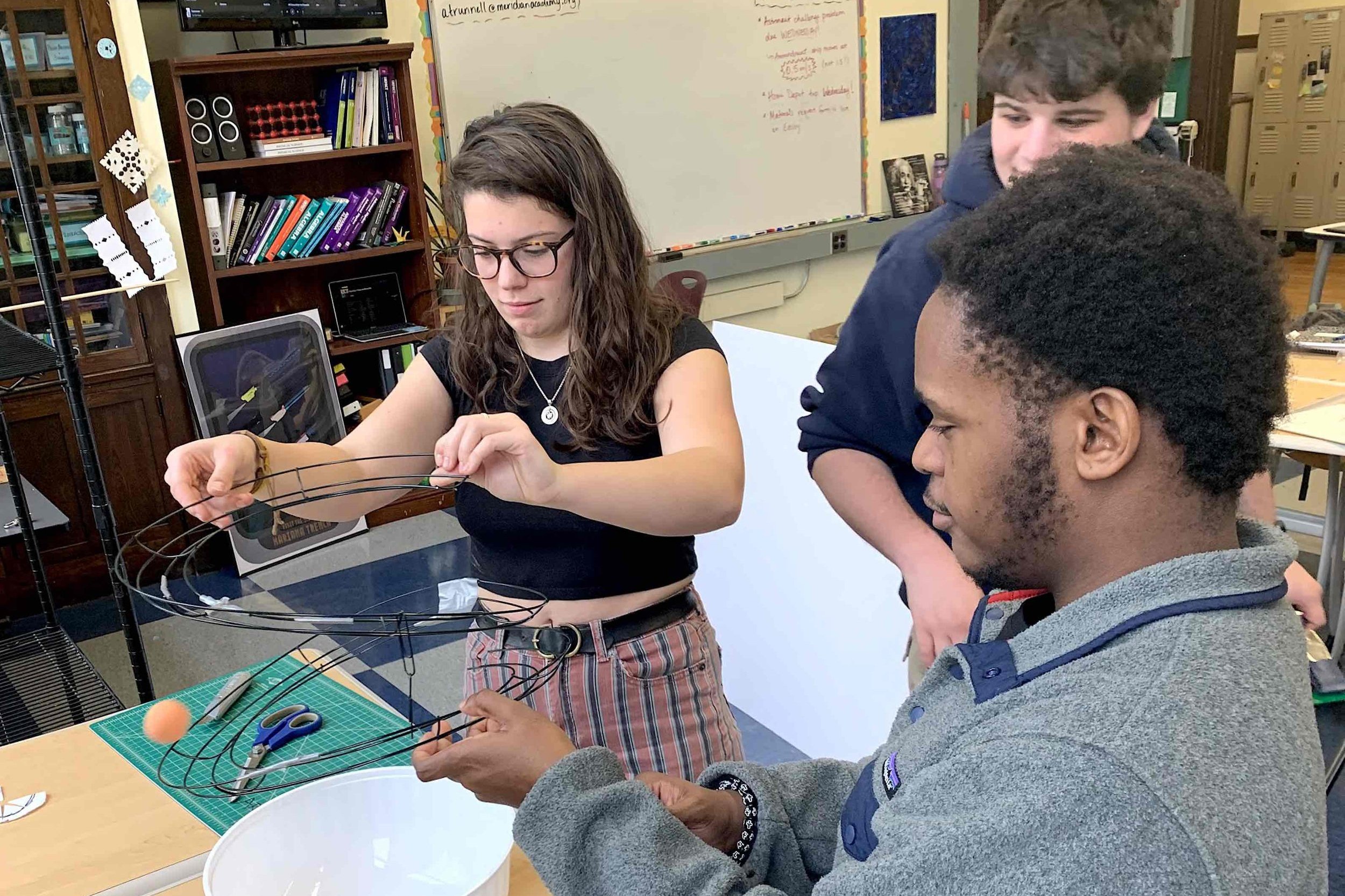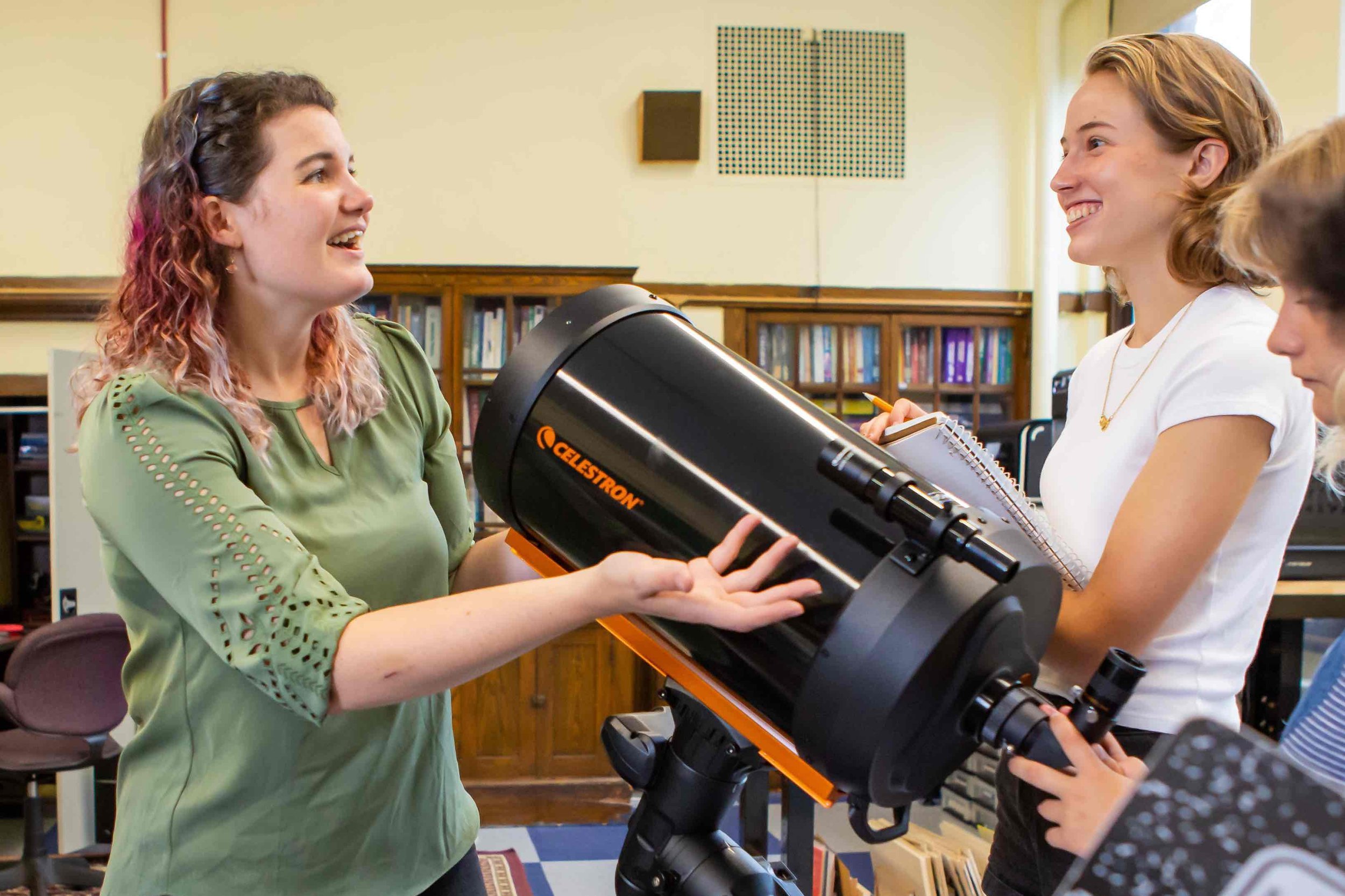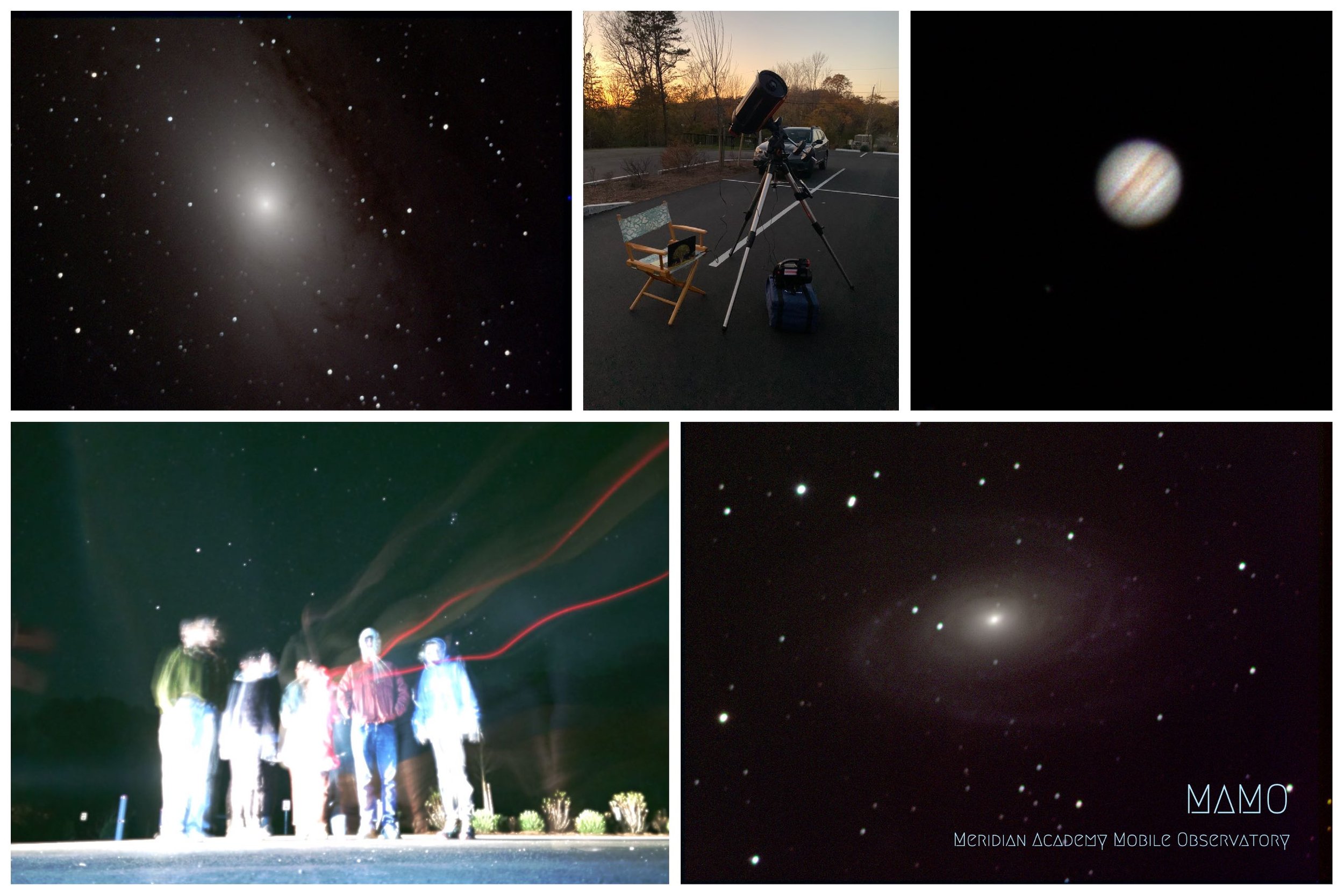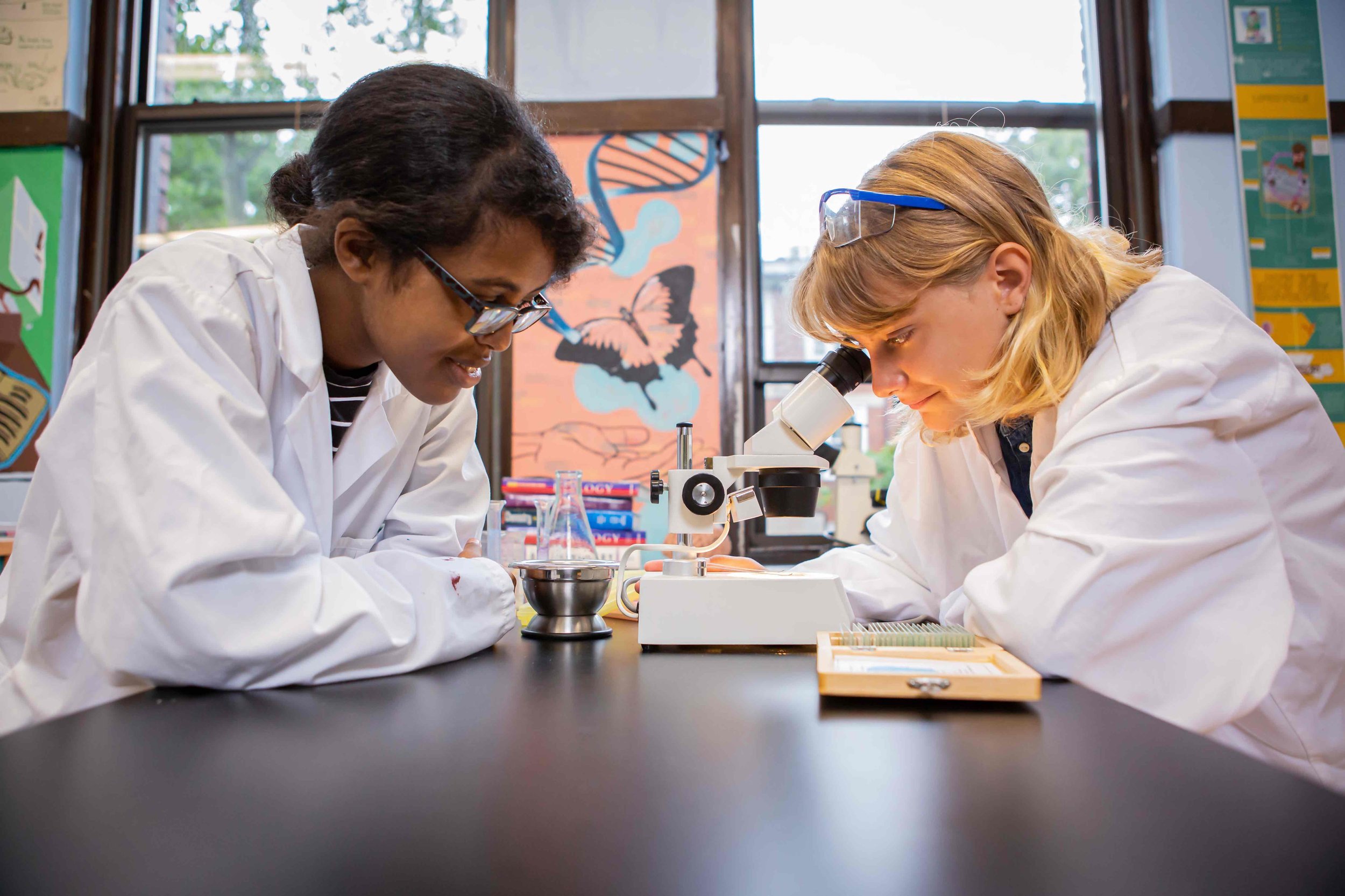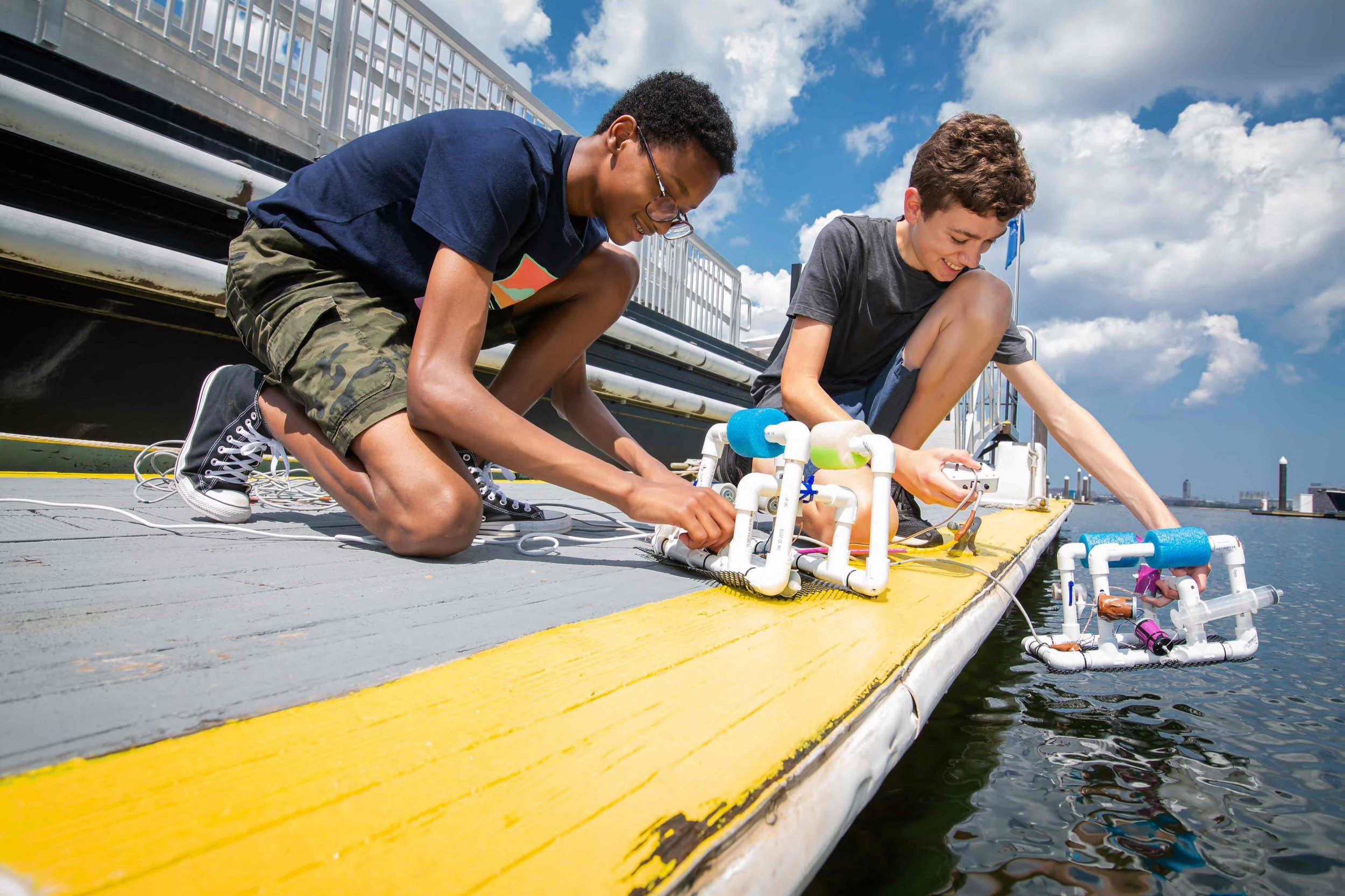Mathematics, Science, and Technology
The Mathematics, Science, and Technology (MST) curriculum integrates these three connected disciplines. Throughout the MST sequence, students learn to:
Understand how scientific and mathematical ideas have developed throughout history
Actively explore mathematical and scientific content
Identify new problems and pose original questions
Carry out original investigations in pure and applied mathematics and science
Apply their learning to new situations
MST classes harness students' natural curiosity about the natural and man-made world, the origins of our universe, and human history. Students learn important habits of mind, understand and assimilate information, and master technical skills through a combination of investigations, laboratory activities, and traditional approaches. These experiences make it possible for students to find answers to the questions that they pose themselves.
All Meridian students complete our sequence of Core Courses and graduate knowing calculus, mathematical modeling, how to do lab research, and how to code. For students who want to investigate MST topics in even greater depth, we offer an ever-growing range of exciting electives available to both our middle and high school students.
| Division | Core Course | Look forward to projects such as these: |
|---|---|---|
| Division 1 | Engineering with Robotics and Computer-aided Design | Designing Your Own Robotic Olympics Sport; Visiting MIT Museum’s Robotics Collection |
| Division 1 | Doing Research in Mathematics and Science | Conducting original field and laboratory research and presenting it at the DRIMAS Plant Science Symposium; Recreating a flag of the world using the equations of lines; Engaging in a Citizen Science Project Involving the Health of Local Trees; Multiple Field Studies in Franklin Park |
| Division 2 | Marine Science | Building a Sea Perch (Underwater Research Vessel); A trip to Woods Hole Oceanographic Institute |
| Division 3 | Revolutions in Math and Science | Creating your own Air Bag Experiment; Studying the Works of M.C. Escher at the Museum of Fine Arts |
| Division 3 | Human Biology and Decision-Making | Designing and carrying out an original Biology/Psychology Experiment; A visit to a modern molecular biology laboratory |
| Division 4 | Calculus and Physics: An Intertwined History | Modeling the spread of a disease; A trip to the MIT Plasma Science and Fusion Lab; Designing, building, and analyzing a Rube Goldberg machine utilizing forces and energy |
| Division 4 | Mathematical Modeling and Computer Science in the Social and Natural Sciences | Creating an original ranking function for a real-world situation; Visiting the New England Complex Systems Institute to learn about big data and non-hierarchical phenomena. |
Interested in learning more about each course? Click here for full course descriptions.
| Electives | Course | Look forward to |
|---|---|---|
| Computer Science Elective | Introduction to Python | Writing a program that encrypts and decrypts (without the key) secret messages. |
| Computer Science Elective | Algorithms and Data Structures | Making an artificial intelligence program to play the card game Racko! |
| Computer Science Elective | Atoms, AND Gates, and Abstraction: How Computers Work | Dissecting a computer; building marble-powered computer algorithms. |
| Computer Science Elective | How Computers and the Internet Work | Understanding how search engines work and coding a simple one. |
| Engineering Elective | Computer-aided Design and Manufacturing | Making a three-dimensional object from flat laser-cut forms in a press-fit design. |
| Engineering Elective | Transportation Without Wheels: Rockets, Planes, and Maglev Trains | Refining the flights of air-pressure powered rockets; remote control airplanes and wind tunnel testing. |
| Mathematics Elective | Mathematics Research | Engaging in original conjecturing and proof in number theory, group theory, recursive functions, and many other fields. |
| Mathematics Elective | Fractals, Chaos, Complex Numbers, and Non-hierarchical Systems | Programming in NetLogo to explore simulations of scientific and societal settings. |
| Science Elective | Science Fair | Individual mentoring as you develop a research question and carry out investigations to share at the state science fair. |
| Science Elective | Transcriptomics | Learn state of the art lab techniques and apply them to genetics explorations. |
| Science Elective | Observational Astronomy | Observing the night sky through a 9.25" diameter telescope; reducing and analyzing astronomical data to find exoplanets and variable stars; visiting the Maria Mitchell Observatory in Nantucket. |
| Meridian also offers a range of AP seminars and tutorials including: Calculus, Statistics, Computer Science A, Computer Science Principles, Environmental Science, Physics, Chemistry, and Biology. | ||


